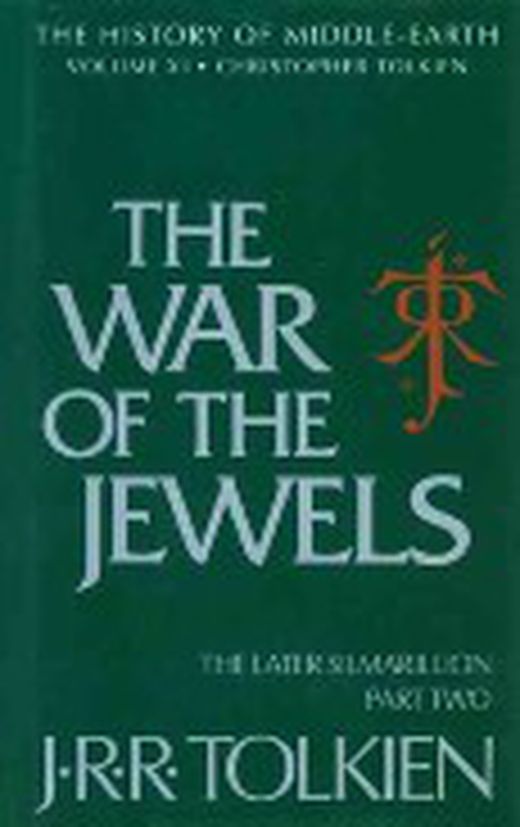CATEGORIES
The War of the Jewels: The Later Silmarillion, Part Two (The History of Middle-Earth, Vol. 11)
from J. R. R. Tolkien
In volumes ten and eleven of The History of Middle-earth, Christopher Tolkien recounts from the original texts the evolution of his father's work on The Silmarillion, the legendary history of the Elder Days or First Age, from the completion of the Lord of the Rings in 1949 until J.R.R. Tolkien's death. In volume ten, Morgoth's Ring, the narrative was taken only as far as the natural dividing point in the work, when Morgoth destroyed the Trees of Light and fled from Valinor bearing the stolen Silmarils. In The War of the Jewels, the story returns to Middle-earth and the ruinous conflict of the High Elves and the Men who were their allies with the power of the Dark Lord. With the publication in this book of all of J.R.R. Tolkien's later narrative writing concerned with the last centuries of the First Age, the long history of The Silmarillion, from its beginnings in The Book of Lost Tales, is completed; the enigmatic state of the work at his death can now be understood. A chief element in The War of the Jewels is a major story of Middle-earth, now published for the first time - a continuation of the great "saga" of Turin Turambar and his sister Nienor, the children of Hurin the Steadfast. This is the tale of the disaster that overtook the forest people of Brethil when Hurin came among them after his release from long years of captivity in Angband, the fortress of Morgoth. The uncompleted text of the Grey Annals, the primary record of the War of the Jewels, is given in full; the geography of Beleriand is studied in detail, with redrawings of the final state of the map; and a long essay on the names and relations of all the peoples of Middle-earth shows more clearly than any writing yet published the close connection between the language and history in Tolkien's world. The text also provides new information, including some knowledge of the divine powers, the Valar.
Category: Bestseller

AVAILABLE:
Never miss an eBook deal again
Subscribe to the free eBook Tips newsletter now
and always be the first to know about the deals!
and always be the first to know about the deals!

